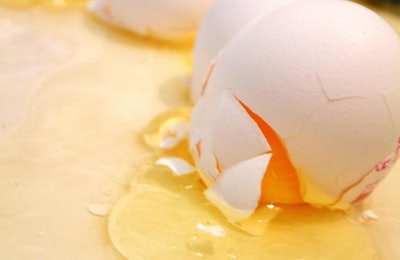
Further investigation of egg contamination in the Netherlands has revealed the issue is both more widespread and serious than first thought, and that farmers were unaware of any risk.
Eggs sampled from one farm had such a high level of pesticide contamination that they are unsafe for human consumption, representing an “acute danger” to human health, according to the Dutch food and product safety board, NVWA in a warning to the public.
The number of farms closed by the NVWA following positive tests has increased from the original seven to 180, reports Dutch News. For the majority of these farms, NVWA is recommending that the eggs are not consumed by children. This advice was issued after eggs, manure and chicken meat from farms and retail eggs were sampled and tested for pesticide residues.
The chemical found is fipronil, which is used to treat lice and ticks but is banned for poultry in the Netherlands. It appears that the pesticide was added by a Gelderland company, Chickfriend, to a mixture of essential oils in order to control the pests on poultry farms, without the knowledge of egg producers.
Affected egg producers to bear all costs
Fipronil will remain in the poultry house and represent a source of contamination, according to Erik Hubers of the Dutch Federation of Agriculture and Horticulture, LTO. Once the source of contamination is removed, the hens will gradually eliminate the residue and their eggs will be safe for human consumption again, he said.
He told the Dutch Broadcast Foundation, NOS, that this could take six to eight weeks, and that there is a possibility that the hens would have to be culled.
Although they were unaware of any risk, farmers are likely to have to bear the cost of cleaning as well as lost production and early culling of the birds, added Hubers. As a small firm, Chickfriend does not have the financial resources to pay compensation to affected producers.
NVWA has issued a list of farm codes so that affected eggs can be identified by retailers, the public and other uses.

















